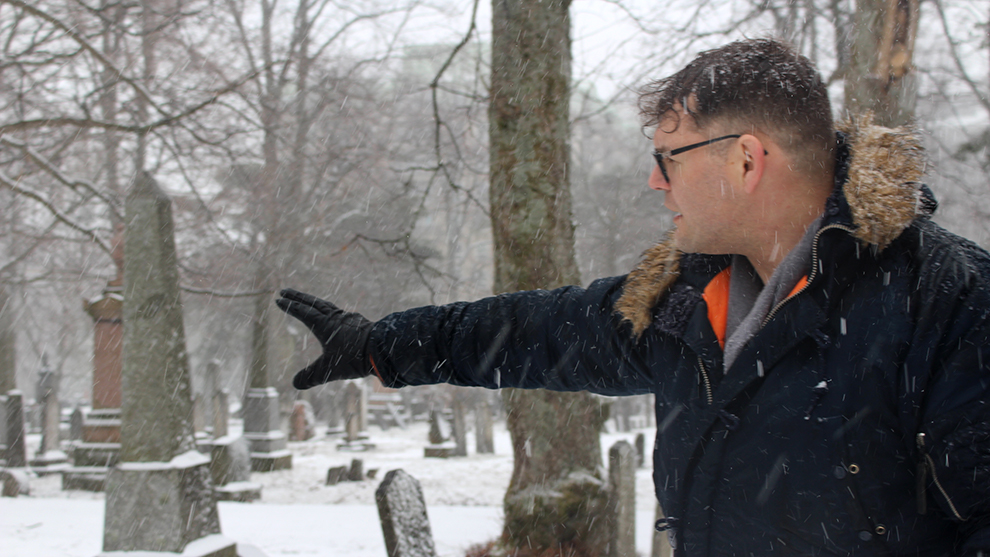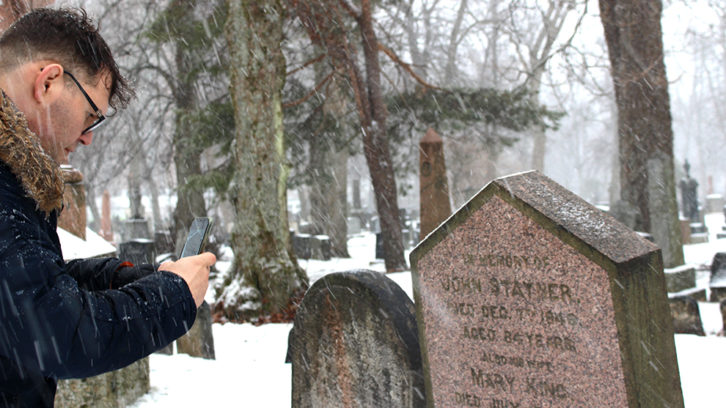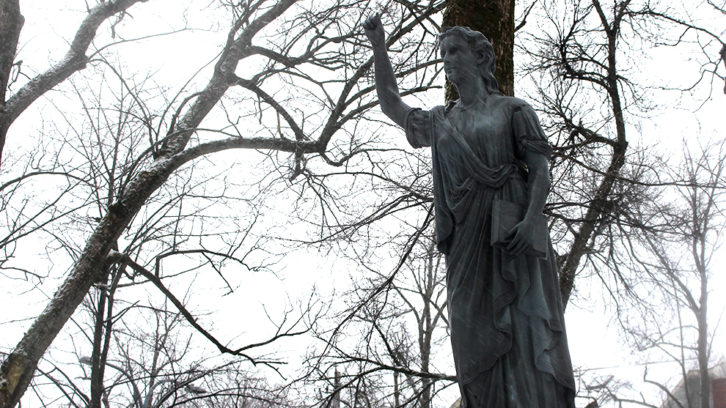Meet the Halifax man uncovering graveyard history, one stone at a time
Craig Ferguson is the man behind the ‘Dead in Halifax’ Twitter account

caption
Craig Ferguson posts about Halifax graveyard history on his Twitter account, 'Dead in Halifax.'For Craig Ferguson, the stories of the dead aren’t that far away from those of the living. That’s what inspired him to start telling them.
Ferguson runs a Twitter account called Dead in Halifax. It does pretty much what it sounds like, telling the stories of those who lived—and are now buried—in Halifax.
“History is all made up of living people’s stories,” Ferguson said in an interview. “And for me it’s really changed my understanding of the city.”
Ferguson is not a historian or an archivist. He works in television, and researches and posts about graveyards in his spare time.
And he posts often. Once a day, from Monday to Friday, he shares a picture of a grave taken from somewhere in Halifax and shares a story about the person buried there.
It’s been just over six months since Ferguson launched the account, which has already reached 1,000 followers.

caption
Craig Ferguson takes pictures to post on his ‘Dead in Halifax Twitter account.On a walk through Camp Hill Cemetery on Monday afternoon, Ferguson explained he wasn’t always fascinated by graveyards. In fact, he used to avoid them.
“I used to be a person who was kind of superstitious and I didn’t even like to walk through cemeteries,” he said. “And that’s something I overcame solely through exposure.”
It wasn’t until he was location scouting as part of his job as a television writer that Ferguson first found himself captivated by cemetery history.
He was walking through the Holy Cross Cemetery in the south end of Halifax when he came across a headstone belonging to Johnny Power. The etching on the grave explained the 13-year-old had died after being lost in the woods on the Northwest Arm.
This fact piqued Ferguson’s curiosity, and he began researching the circumstances of Power’s death.
Through archival research he learned that Power had gone missing after swimming with friends on a hot summer day in July of 1921. The more he learned about the story, the more he wanted to keep digging.
“Every time I overturned a new stone in that story, there was something that made me feel more connected to it because it’s a story that happened in my city,” Ferguson said.
What stood out to Ferguson is that archival news articles from the era show that the story of Power’s disappearance was on the front page of the local newspaper for five days straight, but almost one hundred years later the public seemed to have completely forgotten Power’s story.
From then on, he was hooked.
Ferguson found by understanding the history of the dead around him, he was better able to understand not only the history of Halifax, but its political landscape, its culture, and its geography.
For example, Ferguson explains Camp Hill itself was part of the rural cemetery movement, during which cemeteries were built on the outskirts of major cities. Now, Camp Hill is right in the middle of downtown Halifax, which speaks to how much the city has changed.
“Right away if you start to learn the history of the site you see your city differently,” he said. “That’s the kind of stuff that I personally have found really gratifying about doing this kind of work.”
Ferguson estimates he spends one or two hours in a cemetery every couple of weeks, but the majority of the work he does is at home on his computer, researching the history behind the people whose graves he’s stumbled upon.

caption
A monument at Camp Hill Cemetery in Halifax.He believes the dead buried around us are still in some way connected to not only Halifax, but to the people who live here.
“These people are just your neighbours, they just happen to be dead,” he said. “And if it wasn’t for an accident of history, you might know them.”
In Camp Hill Cemetery, Ferguson points out Alexander Keith’s tombstone. He explains the Halifax ritual of drinking a bottle of Alexander Keith’s next to the grave and leaving it behind as a symbol.
“People come here, they have a drink, and in that time they’re connected to the history of Alexander Keith,” Ferguson said. “In a poetic way, it sort of makes the veil between the living and the dead a little thinner.”
For a hobby, Ferguson devotes a lot of time to running Dead in Halifax. But he says he does it because he loves it, and he wouldn’t do it otherwise.
“There’s nothing in it for me except learning the local history and helping other people who are interested in it,” he said.
“I need to do something that’s just for me, and this is just for me.”

J
James Haviland